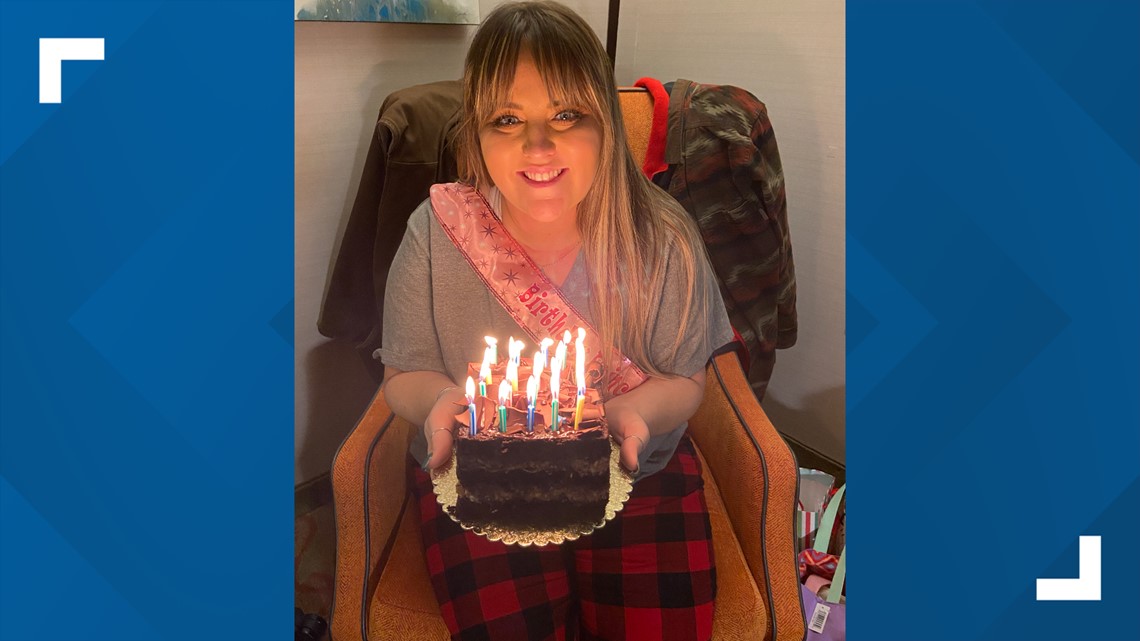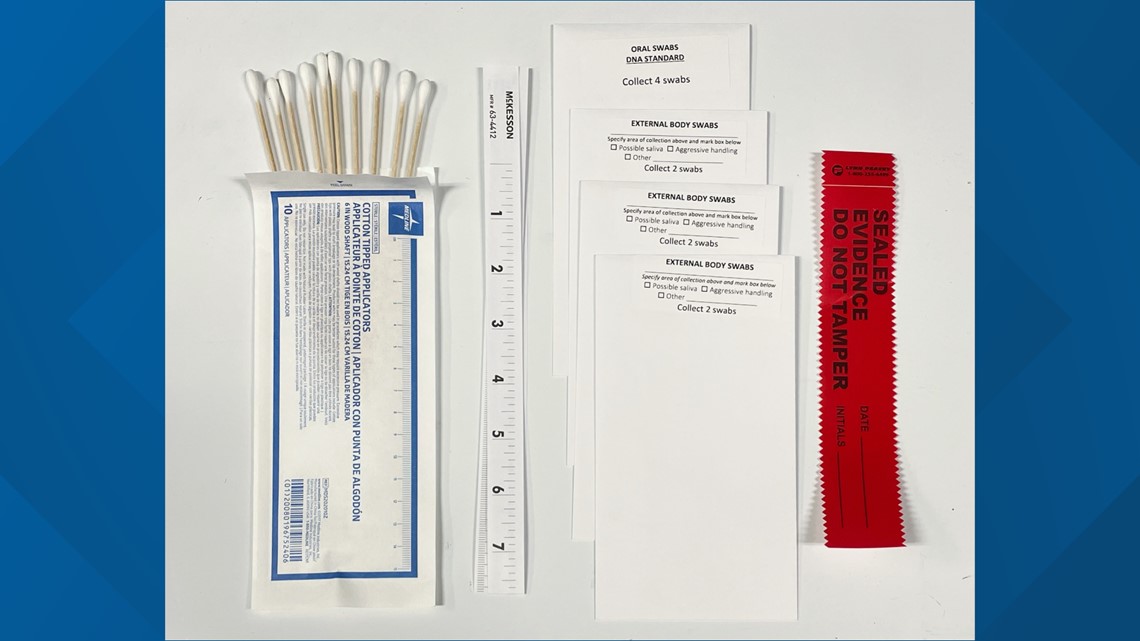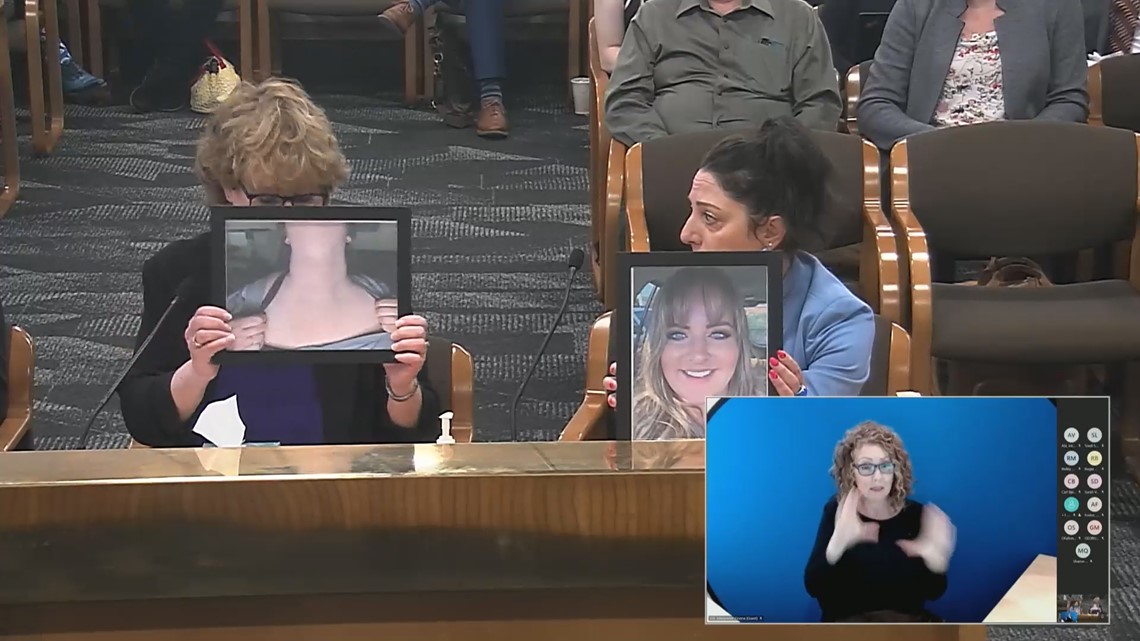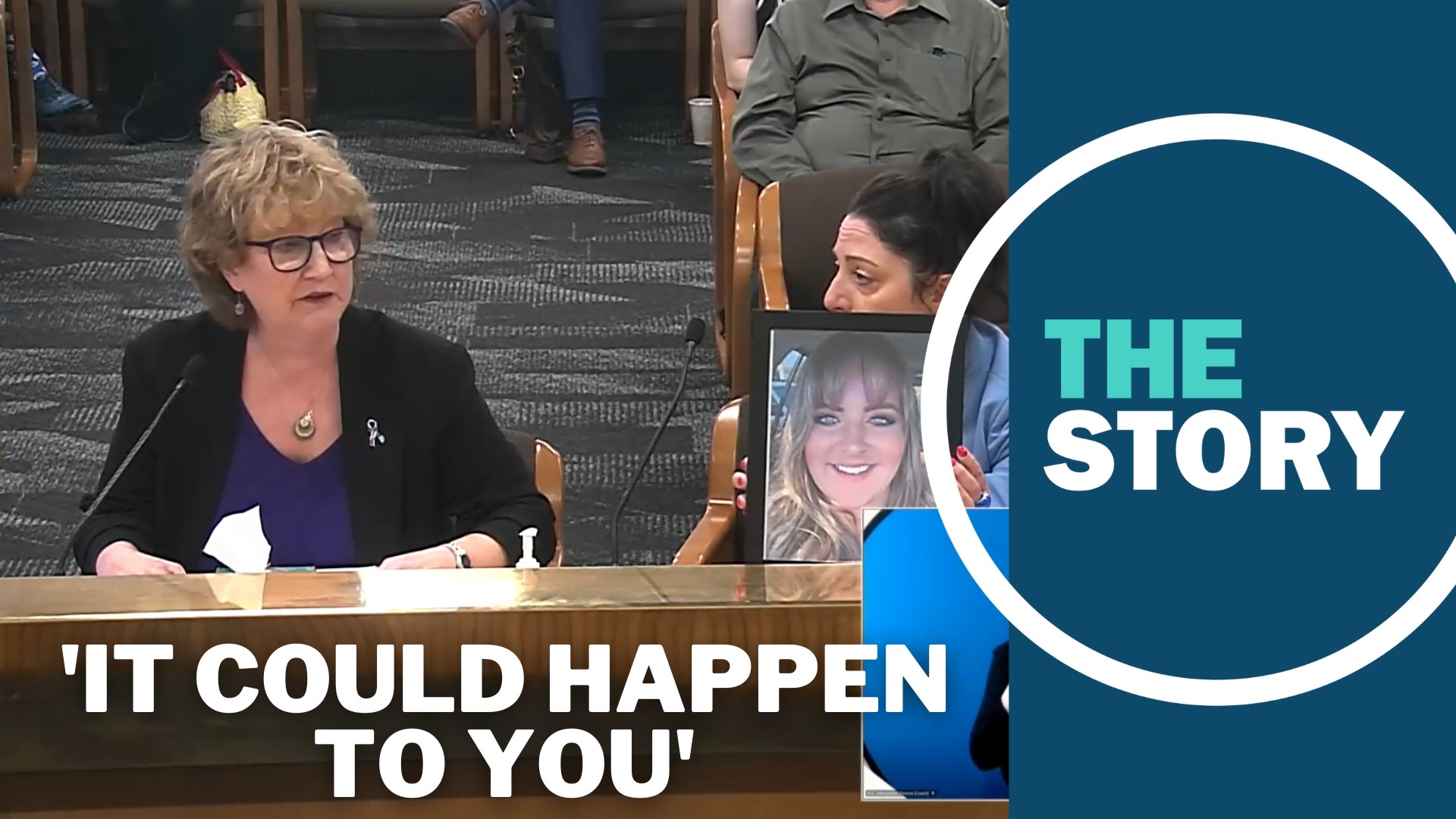SALEM, Ore. — Hundreds of bills are making their way through Salem right now, and any Oregonian has the right to weigh in on whether they become law. As this year's legislative session got going in January, The Story covered ways to get involved in government and create change in local communities, namely by contacting lawmakers or giving public testimony on individual bills.
One person who saw The Story's segments was Kellee Harris of Milwaukie. She decided to contact her lawmakers in order to create some positive change after living through a horrific tragedy.
Just over two years ago, Harris experienced the unimaginable loss of a child. Her daughter, Kelsey Harris, was 31 years old; a teacher and coach at Lebanon High School.
"I think she just really loved being in a classroom environment," reflected Kellee Harris. "She really cared about kids, she loved coaching, she loved teaching, she loved counseling."
But in March 2021, Kelsey ended up in the hospital. She'd been nearly strangled to death, Kellee believes, by her abusive boyfriend. She took her own life just over a week later.
"I think she was so traumatized by what happened, that she just felt that no one was there for her," Kellee said.


'Juries like to see bruises'
Kellee said that when Kelsey went to the hospital, doctors determined that she'd been strangled. But Kelsey wasn't given any diagnostic tests, didn't undergo a forensic examination and wasn't referred for services. Instead, she was simply sent home after being treated.
Charges against the man accused of strangling Kelsey were dismissed. Kellee was told that the case would have been too difficult to prosecute.
"The Linn County District Attorney's office told me, when it comes to strangulations, juries like to see bruises," Kellee recalled. "I will never forget those words. I was told even if Kelsey had lived to testify against her abuser, the jury might not have believed her, since she did not have highly visible neck bruises."
Theresa Muncy is a forensic nurse examiner. She treats patients who have lived through domestic violence. She knows that strangulation injuries are often invisible on the outside — she also knows just how dangerous they are.
"Fifty percent of the time, there are no visible injuries after a strangulation," Muncy said. "Every time a person is strangled, they are more and more at risk of dying just because of the way that injury can impact the brain."
According to the National Domestic Violence Hotline, it's possible that strangulation will produce no outward symptoms, but victims can still die weeks later due to lack of oxygen and other internal injuries. Strangulation can also cause traumatic brain injuries, with symptoms including dizziness, vomiting, seizures, miscarriage, changes in mood and sleep patterns, among many others.
Strangulation is also an important bellwether for escalating abuse. It's a major predictor of future lethal violence, according to the hotline — people who have been strangled by a partner are 10 times more likely to be murdered by that partner.
RELATED: Portland domestic violence murder suspect had his bail covered by community fund a week prior
When it comes to treating strangulation patients, looking closely at their injuries and collecting evidence is vitally important. That's the job of a forensic nurse examiner like Muncy. One of their newest tools is a strangulation kit or "skit." The idea is similar to a rape kit, according to Savannah Powell, another forensic nurse.


"It's usually like a swab on the neck, and what that is collecting is DNA from the perpetrator," Powell said.
And there are ways to take a closer look at potential internal injuries, like with special CT scans. However, those tests can be expensive and — as in Kelsey's case — aren't always done even if there are signs of strangulation.
Taking the law into her own hands
Knowing full well the challenges that strangulation victims face, Kellee got the idea to do something about it after learning from The Story how she could get involved in the legislative process.
Determined to take action in the wake of Kelsey's death and wanting to help other victims of domestic violence, Kellee reached out to her lawmakers and told them she was interested in bills having to do with strangulation victims.
"And they said, 'Well, coincidentally we've got something very strong and solid and we would love to have your support,'" Kellee said.
House Bill 2676, among a number of other benefits for crime victims, would provide strangulation kits free of charge to survivors of domestic violence.
"And they said, 'Come and testify. Tell your daughter's story.' And I said, 'OK, that's going to be really hard. But for Kelsey, I'm willing to do that,'" Kellee said.


Muncy and Powell say that this bill could make a huge difference in ensuring that strangulation victims receive justice.
"You can see on people's faces when you say, 'This is covered, sign this piece of paper and this is covered,' their faces just like relax," Powell said. "And to be able to do that ... expand that funding to strangulation, is going to absolutely change our work."
On April 19, 2023, just over two years after Kelsey Harris' death, Kellee got her chance to testify.
"Chair Sen. Prozanski and members of the Judiciary Committee," she began. "My name is Kellee Harris and I am here as the voice of our late daughter, Kelsey Harris."
As promised, Kellee told her daughter's story in order to advocate for others.


"If strangulation kits had been available in Linn County at the time of my daughter's assault, they could've made all the difference for Kelsey," Kellee went on to say. "I urge you to pass HB 2676."
Kellee said that this is what Kelsey would have wanted her to do.
"It's not just something that happens to someone else — it can happen to you, it can happen to your family, it can happen to your daughter, just like it did for us," she said.
HB 2676 remains in the Senate Committee on Judiciary, having undergone two recent work sessions. It already passed the House in a unanimous vote.
The National Domestic Violence Hotline is operated 24 hours a day, 7 days a week. Call or text 800-799-7233 if you or someone you know may be a victim of domestic violence, to get connected to resources and support.

